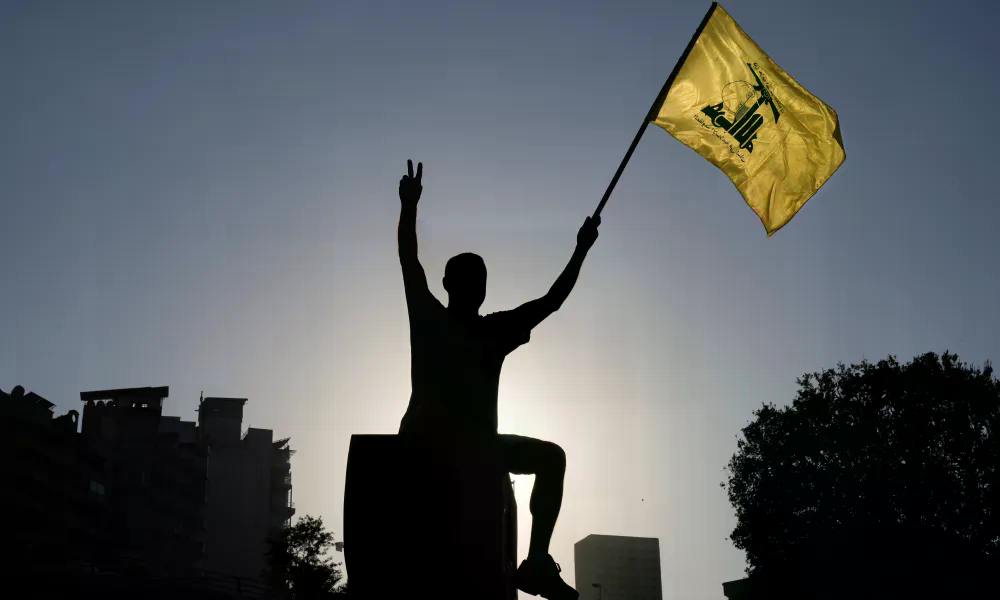
Hezbollah leader Naim Qassem has reaffirmed the group’s commitment to maintaining its military capabilities, stating that the strategy of resistance against Israel should not be framed as a timeline for disarmament. He emphasized that discussions on resistance must occur within a national consensus.
In a televised address from a secure location on Tuesday, Qassem declared, “The resistance is fine, strong, and ready to fight for Lebanon’s sovereignty and independence.” He highlighted Hezbollah’s sacrifices in defending the country against Israeli aggression.
Qassem warned that if Israel resumes large-scale hostilities, Hezbollah, along with the Lebanese army and people, would respond with force. “All the security they have built over eight months will collapse within an hour,” he said.
Following a six-hour cabinet meeting chaired by Lebanese President Joseph Aoun, it was announced that the Lebanese army will be tasked with bringing all arms under state control by year’s end. Prime Minister Nawaf Salam reiterated the government’s stance that the state must hold a monopoly on weapons, according to Lebanon’s state-run National News Agency (NNA).
Qassem made his remarks after Hezbollah supporters gathered in Beirut on Monday night to protest the group’s proposed disarmament ahead of the cabinet meeting. The demonstrations occurred amid pressure from the United States, which has urged Lebanon to push Hezbollah to lay down its arms, while Israel continues near-daily violations of the November truce.
Hezbollah emerged significantly weakened from its conflict with Israel last year, which resulted in the assassination of most of its senior leaders, the deaths of thousands of fighters and civilians, and the displacement of tens of thousands from their homes.
In recent months, the U.S. and Lebanon have engaged in discussions about a roadmap for disarmament. While Lebanon’s new leadership has pledged to extend its authority across the country, it has yet to take action against Hezbollah.
Hezbollah supporters argue that disarmament could threaten their political influence and security, according to Al Jazeera’s Zeina Khodr. She noted that Hezbollah has clearly stated it will not disarm, as doing so would serve Israel’s interests rather than Lebanon’s sovereignty.
Khodr reported that Qassem has expressed feeling pressured by the government, suggesting that failure to disarm could result in withheld reconstruction funds.
Before Tuesday’s cabinet meeting, Hezbollah, through MP Ali Fayyad, reiterated its demand that Israel withdraw from Lebanese territory, release Lebanese prisoners, and cease hostilities before any discussion on disarmament, according to NNA.
Despite this, Lebanon’s political leadership appears determined to proceed with the disarmament initiative, even if it requires force. Elias Hankash, a member of the Lebanese parliament, told Al Jazeera, “If there is a cost to centralize the weapons with the Lebanese armed forces, it may be better like that.”
However, he added, “Everything has been done so far to avoid any clash with Hezbollah.”
Khodr reported that the Lebanese army is prepared to confront Hezbollah if a political decision is made to disarm the group by force. President Aoun called for responsible handling of the arms control issue, noting the sensitivity of the matter due to sectarian divisions and its potential impact on national peace.
In 2008, a government decision to dismantle Hezbollah’s telecommunications network led to violent street clashes. Lebanon’s Agriculture Minister Nizar Hani stated that the president has set a clear timetable for the disarmament process and noted that the army has already taken control of hundreds of Hezbollah sites and weapon depots.
Hani emphasized that while Hezbollah is part of the “Lebanese fabric” and has played a significant role in “liberating the land,” the next phase requires the state to be the sole decision-maker on matters of war and peace.
Despite losing some military strength in its conflict with Israel, Hezbollah remains a powerful political and military force in Lebanon. Mark Daou, another MP, noted that Hezbollah maintains a strong presence in the state due to its dominance in Shia representation and influence over key appointments.
Lebanon’s political landscape has long been divided over Hezbollah’s role and the necessity of disarmament. The issue has shaped Lebanese politics for decades, but growing international pressure and increasing military tensions with Israel have intensified the urgency of the situation.
Khodr noted that the government is now expected to formally commit to disarming Hezbollah, a move that could trigger a political crisis.


